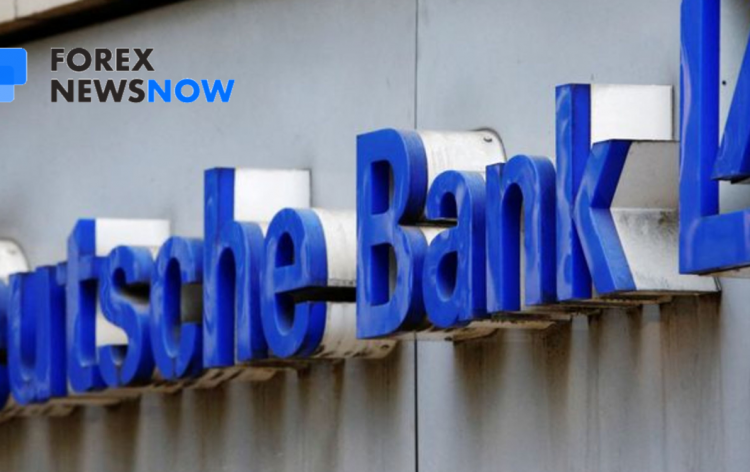Deutsche Bank’s Audacious Move Sparks Global Concerns

In a startling development, Deutsche Bank is set to initiate legal proceedings, filing a liquidation suit against the prominent Chinese real estate giant, Shimao Group. According to reports from Reuters, the banking powerhouse is poised to take decisive action, raising eyebrows in financial circles.
This move signals potential ripples across global markets, underscoring the intricate connections between international financial institutions and major players in the Chinese real estate sector. As Deutsche Bank seeks resolution, the impending legal battle may not only impact the fate of Shimao but also illuminate broader concerns about the stability of financial engagements in the ever-evolving landscape of global commerce.
Deutsche Bank’s Bold Move: Navigating Uncharted Waters in China’s Property Crisis
In an unprecedented move, Deutsche Bank is reportedly gearing up to file a liquidation lawsuit in Hong Kong against Shanghai-based Chinese developer Shimao Group. This comes amidst a surge in credit defaults and a deepening crisis in China’s property sector. Shimao, among the several Chinese developers grappling with defaulting on offshore bonds, saw its entire $11.7 billion worth of offshore debt declared in default after missing a $1 billion bond payment in July 2022.
Deutsche Bank, a creditor of Shimao, is said to be dissatisfied with the developer’s debt restructuring terms, prompting the German bank to pursue legal action this month. The informants, opting for confidentiality due to the sensitivity of the issue, disclosed that the credit exposure of Deutsche Bank to Shimao is linked to undisclosed amounts of private dollar bonds.
This potential legal clash represents a rare occurrence where a prominent foreign financial institution has initiated a liquidation lawsuit against a Chinese developer, a situation that has become increasingly uncommon since the real estate sector faced a debt crisis in 2021. Earlier this year, a Hong Kong court mandated the liquidation of China Evergrande Group, the most heavily indebted property developer globally, in response to a lawsuit filed by a creditor based in the city.
Adding to the intricacy of the situation, a liquidation petition has also been filed against Country Garden, China’s largest private property developer, as it failed to fulfill its repayment obligations. These legal actions coincide with Beijing’s efforts to rejuvenate the beleaguered property sector through a series of support measures, fueling concerns among homebuyers about the industry’s future.
The surge in liquidation petitions against developers aligns with the liquidity crisis that engulfed China’s property sector in 2021, stemming from regulatory interventions to curb a debt-fueled construction boom. As the number of liquidation petitions against Chinese developers continues to grow, analysts anticipate heightened pressure on companies to devise restructuring proposals acceptable to creditors.
Deutsche Bank’s action mirrors the actions of international counterparts like HSBC and Standard Chartered, both of which experienced substantial write-downs resulting from their involvement in China’s real estate sector via investments in domestic banks. While liquidation petitions have been a rare occurrence, Deutsche Bank’s impending legal action highlights the challenges faced by foreign financial institutions entangled in China’s real estate turmoil.
Shimao, a once-prominent player in China’s real estate landscape, initiated formal negotiations in 2022 to restructure its $11.7 billion offshore debt. The updated debt revamp plan, proposed last December, aimed to reduce offshore debt by up to $7 billion through debt exchanges and new loans with extended maturities. However, creditors have reportedly balked at the proposed 50% reduction in their investments, underscoring the complex negotiations that continue to unfold.
Unravelling Shimao: Implications for Financial Traders Amidst Deutsche Bank’s Legal Move
Deutsche Bank’s imminent liquidation lawsuit against Chinese developer Shimao Group reverberates through financial markets, casting a shadow on the portfolios of traders globally. As uncertainty looms over Shimao’s financial stability, traders face potential disruptions that could manifest in several ways.
Firstly, the unfolding legal battle injects volatility into related markets, impacting derivative instruments tied to Shimao’s debt. Traders holding positions in credit default swaps or options linked to the developer’s financial health may experience heightened market fluctuations, potentially leading to unexpected gains or losses.
Additionally, the broader Chinese real estate sector, already under strain, could witness cascading effects. Traders exposed to Chinese property stocks, bonds, or exchange-traded funds (ETFs) may encounter heightened market sensitivity, requiring strategic adjustments to mitigate risks.
Moreover, the situation may trigger shifts in currency markets as traders reassess their exposure to the Chinese yuan. Concerns surrounding the stability of Shimao and the broader property market may influence currency pairs involving the yuan, impacting forex traders and necessitating agile risk management strategies.
Global financial institutions, including those holding bonds issued by Shimao, may also grapple with the aftermath. Traders managing diversified portfolios must closely monitor developments, as potential default scenarios may prompt reassessment of risk appetites and capital allocation.
In essence, the Deutsche Bank-Shimao saga injects a new layer of complexity into financial markets, challenging traders to navigate evolving dynamics with prudence and adaptability in the pursuit of optimal portfolio performance.


























Comments (0 comment(s))